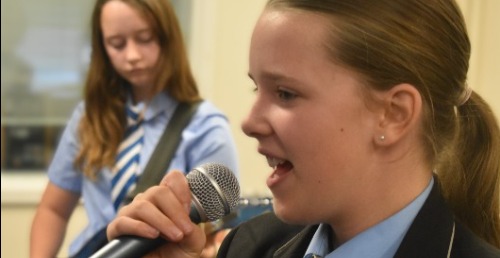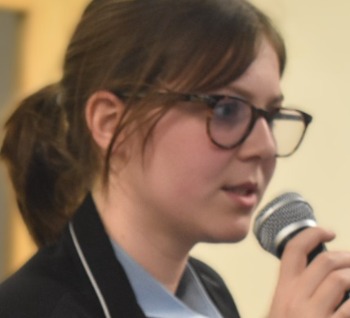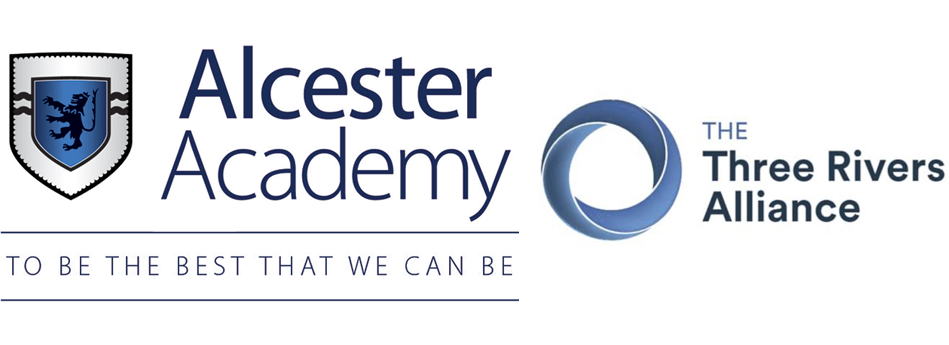Music

Mr R Badham: Associate teacher of Music
rennybadham@alcesteracademy.org.uk

School Music Development Plan Summary
Key Stage 3
Curriculum Intent
We believe Music at key stage 3 should give pupils an opportunity to explore many different types of music through many different means whilst also learning something about the cultural and historical importance of these different genres. Our aim is to ensure all pupils gain knowledge, skills and experience in listening to music, performing music and composing music and gain confidence in using both traditional methods as well as technology to access the curriculum.
Pupils receive one hour of music per week and it is our aim to study a different topic each half term. Within these topics there are opportunities for the listening, performing and composing elements outlined above with some topics lending themselves more to one aspect than the others. Pupils have the opportunity to extend their skills and understanding in one of the three aspects with unlimited opportunities in lessons and outside of the classroom. This we feel feeds well into the key stage 4 course that has three pathways; performer, composer, producer.
Curriculum Implementation (see also Long Term Plans)
In order to create an enriching experience, long term plans are developed with the intention of teaching a variety of music genres and approaching them in a variety of different ways. Topics are planned with the intention that they can be accessed by any type of musician (contemporary to classically trained) at any level of ability (complete beginner to experienced musician with grades), playing any instrument and any preferred learning style (standard notation to guitar tab to auditory, making the curriculum well-differentiated as well as challenging. Furthermore due to the breakout spaces we have in the department we are able to cater for whole-class, small and medium size group and individual activities ensuring full engagement.
Music at key stage 3 is assessed continuously as pupils progress throughout each topic developing their understanding, extending their existing skills and gaining new ones. At the end of each topic there is usually an opportunity for pupils to showcase their skills and understanding through a practical performance as well as the use of an ‘assessment book’ to reflect on what they have learnt in a written format. Music uses cloud-based technology to watch and listen to pupils’ performances as well as store pupils’ written responses.
Curriculum Impact
Key stage 3 learners experience a broad spectrum of different types of music from many different cultures and time periods. They gain skills such as vocal work and singing, basic music theory, instrumental skills including Keyboard and Ukulele, music technology in music, stagecraft and performance. The percentage of students choosing to continue with music fluctuates but is usually between 10 and 20%, well above the national average.
Key Stage 4
BTEC TECH Award Music Practice Level 1/2 (Edexcel)
Curriculum Intent
The music industry is a vibrant, exciting and highly competitive industry that contributed £4.1 billion to the UK economy in 2015, outpacing the overall growth of the economy by 2.5 per cent. In 2016, live music alone created £3.7 billion in direct and indirect income for the UK. The music industry is constantly evolving and offers many different and exciting new work opportunities. In 2015, the music industry supported more than 117,000 full-time jobs in the UK, 69,300 of which were professional musician roles. We aim to give our pupils an insight into the music industry and a qualification that gives them the knowledge and skills required to progress to the next stage in becoming a part of it.
Curriculum Implementation (see also Long Term Plans)
The Award gives learners the opportunity to develop sector-specific knowledge and skills in a practical learning environment. The main focus is on four areas of equal importance, which cover the:
• development of key skills that prove learners’ aptitude in music such as responding to a musical brief using musical skills and techniques
• processes that underpin effective ways of working in the music industry, such as the development of musical ideas, and using skills and techniques for rehearsal and performance to respond to a music industry brief
• attitudes that are considered most important in the music industry, including personal management and communication
• knowledge that underpins effective use of skills, processes and attitudes in the sector such as musical skills and styles.
This Award complements the learning in GCSE programmes, by broadening experience and skills participation in different types of musical techniques for different musical styles. The Award gives learners the opportunity to apply knowledge and skills in a practical way through exploration and development of techniques and styles
The three components in the qualification give learners the opportunity to develop a broad knowledge and understanding of the music industry, specialist skills and techniques in music practice, and how to respond to a commercial music brief.
Components 1 and 2 are assessed through internal assessment. Internal assessment for these components has been designed to relate to achievement of application of the conceptual underpinning for the sector through realistic tasks and activities.
There is one external assessment, Component 3: Responding to a Commercial Music Brief, which provides the main synoptic assessment for the qualification. Component 3 builds directly on Components 1 and 2 and enables learning to be brought together and related to a real-life situation. Component 3 requires learners to apply musical skills and techniques in response to a brief to produce a music product.
Study of the qualification as part of Key Stage 4 learning will help learners to make more informed choices for further learning either generally or in this sector. The choices that a learner can make post-16 will depend on their overall level of attainment and their performance in the qualification.
Curriculum Impact
D*-D at 46%, D*-P at 100%
Many of our pupils go on to study Music and/or Music Technology at A level or BTEC level 3 in Music at key stage 5 as our curriculum gives them the motivation and grounding to progress in Music and to aspire to work in the industry.
Music Long Term Plans and Assessment Plan
Music LTP Year 9
Music LTP Year 10
Music LTP Year 11
Examples of the kinds of assessments to expect: Music Assessment Plan







